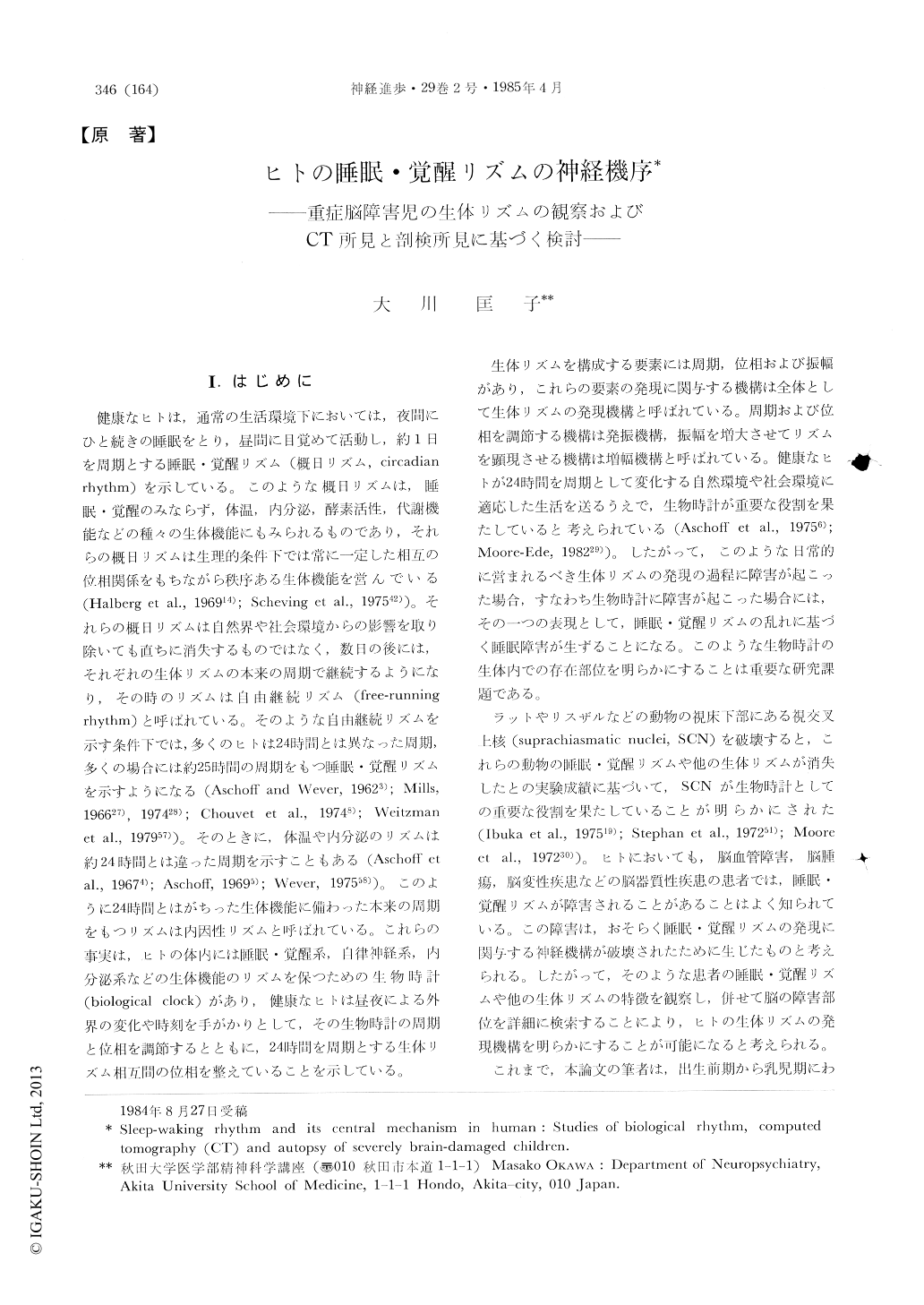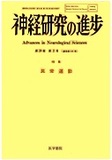Japanese
English
- 有料閲覧
- Abstract 文献概要
- 1ページ目 Look Inside
I.はじめに
健康なヒトは,通常の生活環境下においては,夜間にひと続きの睡眠をとり,昼間に目覚めて活動し,約1日を周期とする睡眠・覚醒リズム(概日リズム,circadianrhythm)を示している。このような概日リズムは,睡眠・覚醒のみならず,体温,内分泌,酵素活性,代謝機能などの種々の生体機能にもみられるものであり,それらの概日リズムは生理的条件下では常に一定した相互の位相関係をもちながら秩序ある生体機能を営んでいる(Halberg et al.,196914);Scheving et al.,197542))。それらの概日リズムは自然界や社会環境からの影響を取り除いても直ちに消失するものではなく,数日の後には,それぞれの生体リズムの本来の周期で継続するようになり,その時のリズムは自由継続リズム(free-running rhythm)と呼ばれている。そのような自由継続リズムを示す条件下では,多くのヒトは24時間とは異なった周期,多くの場合には約25時間の周期をもつ睡眠・覚醒リズムを示すようになる(Aschoff and Wever,19623);Mills,196627),197428);Chouvet et al.,19748);Weitzmanet al.,197957))。
Fifteen patients with the sever brain damage, ranging in age from 2 to 16 years, were examined in regard with sleep-waking rhythm and fluctuation of body temperature (BT) and cortisol secretion for a period of 27 to 30 hours, on one or more occasions at an interval of 1 to 15 months. CT scan examination of the brain was performed in 3 of the patients. Neuropathological investigation performed in 3 of the patients presented important information about the human biological rhythms.

Copyright © 1985, Igaku-Shoin Ltd. All rights reserved.


